#David Farland
Quote
It seemed to him that a man could not truly be good in isolation. To develop such virtue, he had to recognize that he was inextricably tied to his community, to the brotherhood of mankind.
Earth King Gaborn val Orden, Wizardborn by David Farland
#earth king gaborn#gaborn val orden#wizardborn#david farland#goodness#community#brotherhood#mankind#virtue#more introspection from my man gaborn#book quotes
7 notes
·
View notes
Text
Books with “F” Authors I Own and and Need to Read Part 1





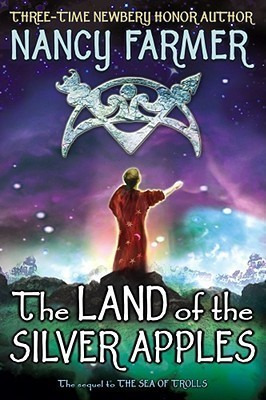




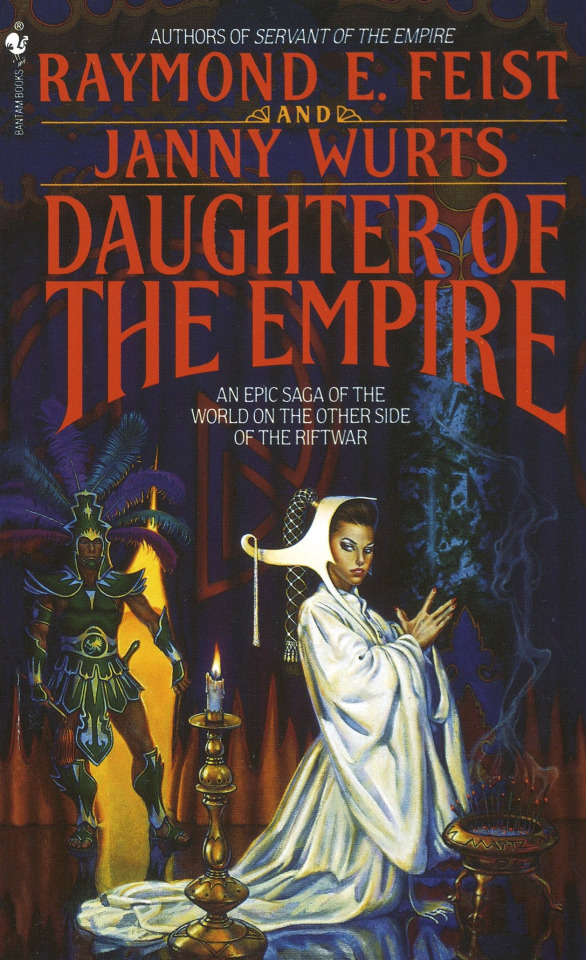

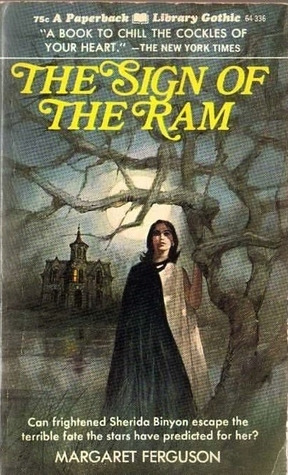
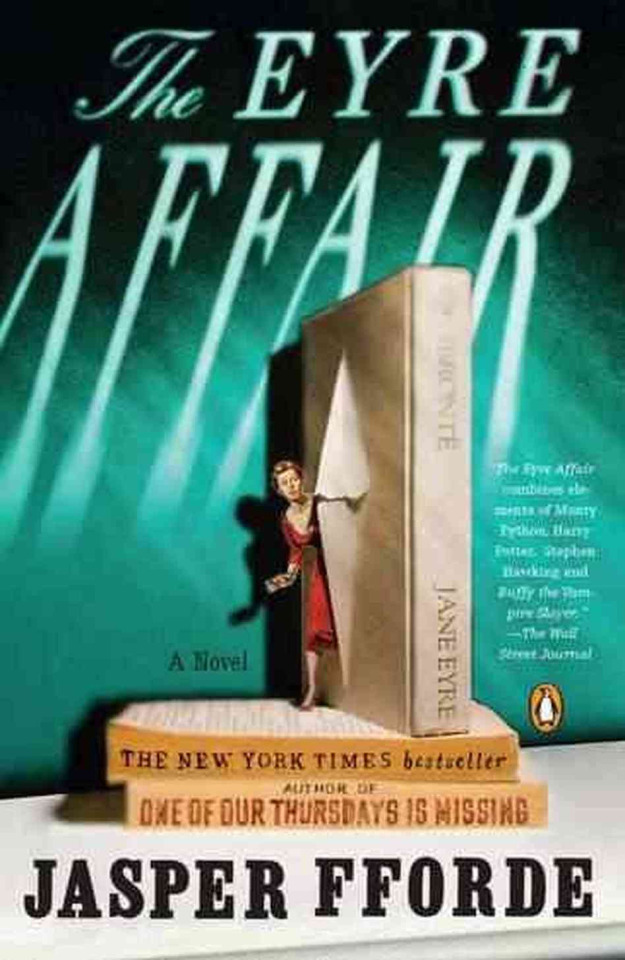

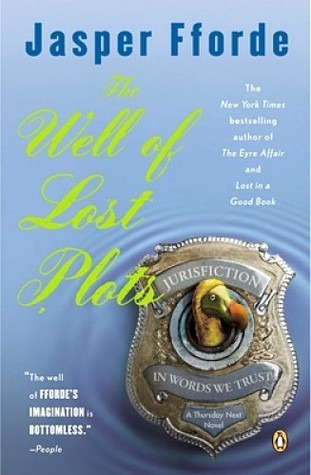
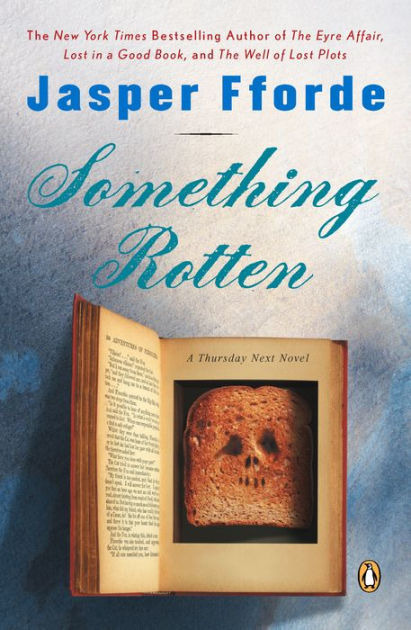







#Authors#Booklr#TBR Shelf Shaming#Jennifer Fallon#David Farland#Walter Farley#Nancy Farmer#Lyndsay Faye#Raymond E. Feist#Margaret Ferguson#Jasper Fforde#M. I. Finely#Catherine Fisher
0 notes
Text
youtube
0 notes
Text
May my vibe be one with the book gods.
Update: I did not know David Farland had passed away…

into the realm of the Book Gods. I love that Blake is like: Novels? Not my department, but I do have someone who can help! The compelling part is I didn’t even know who he was—or his books— but after watching two insightful interviews of him discussing writing, I feel divinely seen. I’m not sure I’ve ever really challenged myself as a writer. It will be fun reworking what I’ve written, allowing it to be more than what I think it is.
0 notes
Link
Tomorrow at 7pm pt; #ChattingWithSherri welcomes #awardwinning #author; #DavidHankins; http://tobtr.com/12223994 #interview @_davidhankins @WotFContest
0 notes
Text
How My Books Get Written

A lot of people like to ask writers where their ideas come from, and how those ideas lead to the development of a whole-ass novel or series. And it’s an interesting question, one I don’t necessarily have consistent answers for. Every book is different, at least for me.
Usually, the first thing that comes to me is a scenario. For the All the Promised Stars it was the thought of someone being in love with one person but having to marry someone else, and how that would affect all three characters. Sometimes this scenario is wrapped up in a specific scene, and in ATPS, that scene was the scene in the spaceport, with Will saying goodbye to Amelia, as they both went off to what they thought were going to be separate destinies. In The Soul Cages (out this week! Watch this space!) it was the thought of a character whose main relationship was with a person who only existed as a ghost, and the process of that person falling in love with someone and working out how to bring the worlds of the living and the dead together, and the choices that would entail.
Sometimes, what comes to me first is a character. That’s what happened with The Ascension Apocalypse series (Blade of Shadows, Wings of Light will be out in August). I can’t tell you the seed that developed into the character of Jack Bainbridge because it’s a massive spoiler, but everything else grew from there.
Usually, the next thing that comes to me is the relationships the character or characters is/are entangled in, and how those relationships will grow and evolve throughout the story. Most of my stories center on relationships, so this is one of the things that I’m most interested in. Next, I start working on the milieu in which the story takes place. David Farland, an award-winning author and fiction coach, suggested working out the setting first, because that will inform everything else. And that’s true, though it’s not the absolute first thing that comes to me. Usually, the setting will suggest the actual plot, and the entire cast of supporting characters. Setting is probably also the thing that I work on the longest, as I need these story worlds to make internal sense. It also tends to grow as I write, as it becomes apparent there are worldbuilding pieces I need that I haven’t developed yet.
Hopefully, by this point I have some idea about what is going to happen in the story, i.e. the plot. If the inspiration was a scenario, that helps, as I know the conflict I’m building toward. But it’s absolutely vital to have the main points of the plot worked out before I begin writing. There is a big divide in writing between discovery writers, who start out with little than of a vague idea and ‘discover’ the story as they go, and plotters, who have everything worked out beforehand. This is not, however, a strict binary. I’m somewhere in between. I used to see myself as a discovery writer, but it doesn’t escape me that I didn’t really start finishing things until I started plotting them out. So now, I plot out an outline of major events, knowing what I’m working toward. The connective tissue between those events, however, is a little loosey-goosey. This leaves room for surprises, and organic character moments.
I’m also not married to this structured plot. If a better idea comes to me as I write (which it almost always does) I steer myself in the new direction. It is also true that there are scenes that I imagine happening at certain points in the story that no longer feel right when I reach that point. I do not force the story to align with the original idea, but look at what I have written and find something that fits. This almost always turns out to be better than what I originally planned.
If you’re looking for a metaphor here, my plots are like a wooden trellis built over a rose bush. There’s a structure in place, but the growth happens organically, and can sometimes end up with a result I didn’t quite expect.
Once I have the plot in place, I write a short description of each scene on 4x4 post-it notes and place them on my white board. In long projects, these notes will be altered several times as the plot evolves. And that’s how I get through my drafting phase. As I write, I type in green text, so I can go back the next day and give the work a light edit as I review where I am. Following this process, I usually end up with a first/second draft that doesn’t need major rewrites.
Once the first draft is done, I put it aside for a month, then print it out and do what I call my ‘paper edit,’ going through the text fixing typos and looking for other ways to make the story stronger. If scenes need to be re-written, this is usually where it happens. Once this is done, I put the edits in the file on the computer, then send it to my editor, who works her magic.
With this process, each book ends up with 4-6 distinct drafts, depending on the editor’s feedback, and how extensive any re-writes are.
And that’s my process. How long it takes depends on how long the book is. When drafting, I usually write 2000-3000 words a day, four days a week, so a 100,000-word novel would take me about ten weeks. This is a fast enough pace that my adhd doesn’t kick in and cause me to get bored with it.
Every writer has their own distinct process, and mine may not work for you. But it does seem to work for me, as I’ve finished eight books since July of 2019.
0 notes
Photo

L. Ron Hubbard Presents Writers of the Future Volume 35: Bestselling Anthology of Award-Winning Science Fiction and Fantasy Short Stories
Writers of the Future Volume 35 $1.99 (Reg price $9.99)
The 35th collection of winners of the Writers and Illustrators of the Future competition features expertly crafted stories and art, spanning the gamut from hard core sci-fi to epic fantasy. Discover 24 Award-Winning sci-fi and fantasy authors and illustrators.
Bonus stories and writing advice from L. Ron Hubbard, Dean Wesley Smith, Rebecca Moesta, Mike Resnick, Rob Prior and Echo Chernik and edited by David Farland.
“Writers of the Future collection is exciting and engrossing, with stories that range across the spectrum of SF and fantasy. Tried-and-true space opera and epic fantasy, these stories explore new mysteries and ideas.” —Publishers Weekly
You will love Writers of the Future Volume 35 because, as Locus Magazine puts it, “Not only is the writing excellent, it is also extremely varied. There's a lot of hot new talent in it.”
Get it now: https://amzn.to/3IaU2Ye via @amazon
#KindleDeal #sifi #fantasy
1 note
·
View note
Text
Worldbuilding and Me
So, not that long ago I picked up Million Dollar Outlines by David Farland and I loved it. I have often struggled with Outlining versus Discovery writing because I fell into the category that once I had dreamed up the whole thing into an Outline, I no longer had the motivation to write the story. Mr. Farland’s advice to take the middle ground has been life-changing. I do still write that sketchy…
View On WordPress
0 notes
Text

So far this year I have read:
Tress of the Emerald Sea - Brandon Sanderson
The Way of Shadows (Night Angel trilogy#1) - Brent Weeks
A Shadow in the Ember - Jennifer L Armentrout
Currently reading:
Touched by Magic - Doranna Durgin
Ayoade on top - Richard Ayoade
Last Argument of Kings (First Law trilogy #3) - Joe Abercrombie
Brotherhood of the Wolf (Runelords #2) - David Farland
The three I have finished were really good for very different reasons. Tress will probably be a favourite for many years. And just picking up Last Argument of Kings I remember why I love Abercrombie. It is immediately gripping.
Ayoade on top is so disappointing though. Gonna finish it tonight/tomorrow but it is like a 2star read. I rarely give that bad ratings but it's just not working for me.
1 note
·
View note
Text


ad. 📚 ✍️ Check out the Writers of the Future: Contest and Anthology!
In case you have not heard, the Writers of the Future contest is dedicated to discovering and nurturing new authors and illustrators. It is a great resource for #aspiringwriters.
The contest and book are great resources for moms. If your teen wants to write or illustrate, they can use the free resources and enter the contest. Their story will only compete against other NEW talent.
The winning #stories are selected by some of the leading authors of popular fiction, including Brandon Sanderson, Nnedi Okorafor, Orson Scott Card, Jody Lynn Nye and many others.
Once chosen, they are published in a single book with the best of best new talent.
This year's winners are in Writers of the Future Volume 38.
It is a diverse collection from post-apocalyptic to high fantasy and space opera to magical realism. And appropriate content for high school.
There are also short stories by Frank Herbert, David Farland, and L. Ron Hubbard. Frank Hebert of Dune was a judge for the contest, and his last essay with advice for new writers and one of his rare short stories are both in this book.
There is also a story about saving the mammoths. Awesome.
It is recommended for both avid readers and reluctant readers because the stories are short and interesting.
Book reviews:
“Unpredictable, nicely crafted, appealing with many twists, an engaging balance, one successfully re-invents time travel stories, and another pulls the reader in from the mystery’s opening and zips along until the shadowy end.” —Tangent Online
“A literary smorgasbord where each new story comes with a feeling of excitement and mystery. It's a binge read. Just one more, you think, and the next thing you know the entire book is gone!” —IRB
Quick links:
Buy Writers of Future Volume 38: https://www.amazon.com/dp/B09VXXCP5T
Enter the Contest https://www.writersofthefuture.com/enter-writer-contest/
Writing Workshop https://www.writersofthefuture.com/writing-workshop/
https://www.amazon.com/Ron-Hubbard-Presents-Writers-Future-ebook/dp/B09VXXCP5T
.
.
.
.
#scifi #authors #bookreview #writercontest #contestalert #writersofig #writerslife
0 notes
Quote
Yes, I am casting a spell of sorts. I'm taking time to renew. The touch of grass, the smell of pines in the wind, the taste of soil - they invigorate me. Sometimes, rest can feel magical, can't it?
Earth Warden Binnesman, Wizardborn by David Farland
#book quotes#earth warden binnesman#binnesman#wizardborn#david farland#spell#spells#wizard#rest#renewal#earth#nature#magic#the spell of rest#need to cast that one more often#touch grass
8 notes
·
View notes
Text
RIP

T_T tears, I just heard (I am about a month behind the times) that Dave Wolverton died. Young, really. He was 64.
I must have taken his second to last class. Possibly his last full one.
Wolverton was probably better known as David Farland, author of the Runelords series.

But his influence was probably more felt by his contributions to others.
Wolverton had a very full career.
The big highlights that made me sign up for a class from him.
He was an editor and judge for Writers of the Future.

He taught creative writing at Brigham Young. One of his students, now teaches the same class he used to teach, You have probably heard of him as well:

While teaching that course he also taught another best seller whose first book he consulted heavily on:

But probably the biggest tie in happened when he was working as a consultant at Scholastic. Scholastic had had an unusually successful year and was looking to make a big release. He was asked to pick the book from the “nobody anyone has ever heard of” pile that they would do the barnstorm on. He chose this one:

I suspect no one has bothered to count the little influences he has had through the writing world. Which no doubt accumulate into a much greater influence. He liked to give his knowledge and expertise. He touched a lot of lives.
I am grateful for the very tiny little piece of him I got. What a loss :(
2 notes
·
View notes
Text
I finished the first of David Farland’s Runelords books, so review time.
I’m.... torn. There is so much here that just feels amazing about the world. I’m a huge fan of fantasy worlds with multiple largely-unrelated types of magic (though I have my suspicions about this series), and Runelords does a wonderful job of it. It’s got old-school HIGH high fantasy “the earth has granted you a boon” type of magic that’s incredibly vague and not very tactile, then it’s got endowments, which are basically “this person has endowed you with their brawn, so we’ll poke them with a stick made of blood, say some spells, then poke you with that stick, then you have all their strength in your body but they don’t have any strength anymore”. Endowments are an incredibly cool way to mesh “magic” deeply into the social structures of the world.
On top of that, there’s a general air of Anglo-Saxon, Celtic, and Gaelic (correct me on those, I know nothing about folklore, but that’s the vibe) fantasy about it e.g. “The ghosts of our forefathers hunt these woods”, “We befriend the inscrutable wizards to keep peace with the land”, “The bad guy lives south of us”, et cetera. I feel like a lot of what I’ve read, fantasy-wise, has been much more hesitant to pull these kinds of themes directly from real-life folklore and has buried them deep under more original, or at least more distantly and complexly derivative, motifs. Farland slaps them right up front as if to say “Yup, we’re doing castles and magic and vaguely significant elemental powers. And axe ghosts.”
I’m overplaying the ghosts part; it comes up like one and a half times.
Oh, yeah, I forgot: what’s the book about?
It’s about a prince named Gaborn who’s visiting a friendly kingdom with his father for an annual hunt when a massive army invades from the south with the goal of conquering the known world. The army is led by a man, Raj Ahten, who has taken so many endowments of so many kinds that he’s practically indistinguishable from a demigod. He’s mostly unkillable and unstoppable in battle, and I’ll leave off the description there because you really HAVE to read for yourself how scary this dude is. Anyway, this guy invades the kingdom, Gaborn is found to be... let’s say “cosmically significant”, and the book becomes a race against time to get set up to defend the next place Raj Ahten is going to take over. That’s pretty much it without spoiling anything.
The second quarter of the book also sets up the larger conflict to come with a much scarier enemy than Raj Ahten himself. Overall, this book starts the world off in a pretty rough place and absolutely PLUMMETS from there. Shit’s going bad quick. I have mixed feelings about worlds this bleak. One of my biggest complaints about the plot itself is that I wasn’t really given that much time to learn what the world was like before everything went south so I wasn’t really able to mourn its loss. A lot of other books I’ve read that plunge the world into an apocalyptic conflict spend a LONG time on the precipice, but this book dove straight off it and ended still in freefall. It makes me think that even though all hope is not lost, we have a lot more to lose before we hit rock bottom.
I’m going to be absolutely shocked if someone tells me they remembered much of anything about most of the characters after the book ended. They’re incredibly generic and almost feel like they’re written with the express intention of conforming to archetypes. Gaborn is an absolute blank slate of a hero who’s given about ten pages of characterization. His bodyguard Borenson probably gets the most, despite having significantly less focal time, with Raj Ahten coming in second. This isn’t quantitative really, just a vibe.
I made an earlier post noting that I saw red flags about the treatment of women early on. Some might call these red flags either inherent to the genre or fairly minor, but I still think they’re worth mentioning. I have a rule: when an author does not make overt attempts to sexualize a woman, but ascribes an adjective to her breasts, that’s one strike. It’s totally fine in my eyes for authors to sexualize characters. Some people in real life are just very sexual; it’s just a way a person can be. The problems arise in a few situations: one, the character is not otherwise sexual and the narration’s sexualization is casual rather than purposeful; two, every single character of a certain type (based on gender, nationality, ethnicity, etc) is sexual without any narrative justification; three, a character’s benign sexuality is demonized. This isn’t a comprehensive list, but it’s the three main situations I find the most often.
To be perfectly clear, the most sexualization a character gets (to my recollection) is the aforementioned breast adjective treatment (Pert? Really dude? Fucking pendulous?) and one instance in which the leading lady’s castle gets invaded and she’s concerned about being raped by the invaders. This doesn’t happen, luckily, and can be written off as a worldbuilding beat that establishes this as the kind of place where invading armies do rape and pillage, but it’s there nonetheless.
It’s almost obnoxious to me how much these red flags bother me. The book was very fun to read. It was really well-paced, with enough surges and lulls in action to keep me hooked without being annoyingly can’t-put-it-down.
The greatest strength of The Runelords is a worldbuilding concern: the seamless integration of the most common type of magic--endowments--into the world’s social structures. When I first started the book, I made a post saying something to the effect of “This book is going to be awesome if it really explores the significance of a person crippling themself to endow someone else.” It did explore that significance; it did so to an even greater degree than I’d have hoped for a first installment of a long series. Looks like there are 8 books so far and they cross multiple generations, so I do wonder if there’s going to be large-scale social change around the concept of endowments. Admittedly, as a reader, this book felt like it had an identity crisis. Farland clearly knows that he’s created a world full of impossibly badass dudes, and there are points where you can tell that all he wants to do is write about said badass dudes beating the absolute shit out of each other. He also knows, though, that he’s created a world full of really wacky shit that he wants to share. Despite having overall really good pacing, this book suffers mildly from the shifts between those two tones.
Would I recommend this book? Yeah, with the caveats I’ve listed above. I had a good time reading it. If, like me, you’ve got a less avid reader in your house with whom you can share the occasional bullshit and laugh together, this book is a great time. I think that if someone handed this book to me and said “Read this, it’s the best thing since buttered bread” I’d have been sorely disappointed, but I found this book at Goodwill so my expectations were literally zero.
Summary:
Pros:
Cool world and magic
Super badass action sequences
Hints at the world being a bigger place than we’ve seen so far
Interesting potential future conflicts set up early
Fairly good pacing
Depends on your standards and preference/meh stuff:
Very bleak setting
Decent, if a bit blank-slatey and forgettable, characters
Middling amounts of gore (no slowly driving knives into eyeballs, luckily)
Women have some recognizable amount of agency, but not much
One type of magic is not very fleshed out early on
Cons:
Some issues with language referring to women
Tone shifts between “look how badass this is” and “look how interesting this is” don’t always work well
Does not pass the Bechdel test (lol there are like 3 women with meaningful dialogue)
Setup for later conflicts felt a little bit jarringly sudden
I mean, if you’ve got a couple days and nothing else on your reading list, you should probably be okay with this book. I wouldn’t call it below-average, but then maybe I’ve got low standards.
4 notes
·
View notes
Link
On Thursday; #ChattingWithSherri welcomes #awardwinning #author; #DavidHankins on 6/15/23 at 7pm pt http://tobtr.com/12223994 #interview @_davidhankins @WotFContest
0 notes
Text

'Runelords Greenman'
Source:
https://www.howardlyon.com/blog/2010/03/12/runelords-greenman?epik=dj0yJnU9NGVNbEFuZnY5Ml9iX056ZldrVW52MmJDRnJpckxaWjEmbj1XOHZHYzczakllVFJEdEJ2Nk5EVW93Jm09MyZ0PUFBQUFBRjFleVdF
Description:
This is an image that was created for David Farland’s Runelords property. His Runelords series has a most unique fantasy setting.
Here is a rendition of the Greenman from the Runelord’s world.
Found by Pinterest search.
#runelords greenman#runelords#greenman#howard lyon art#david farland#fantasy artwork#pinterest#fantasy fiction artwork#gifts of heimdall runes#gifts of heimdall
32 notes
·
View notes
Text
I think most authors are half crazy, and the better ones are completely crazy.
David Farland, LTUE 2019
3 notes
·
View notes